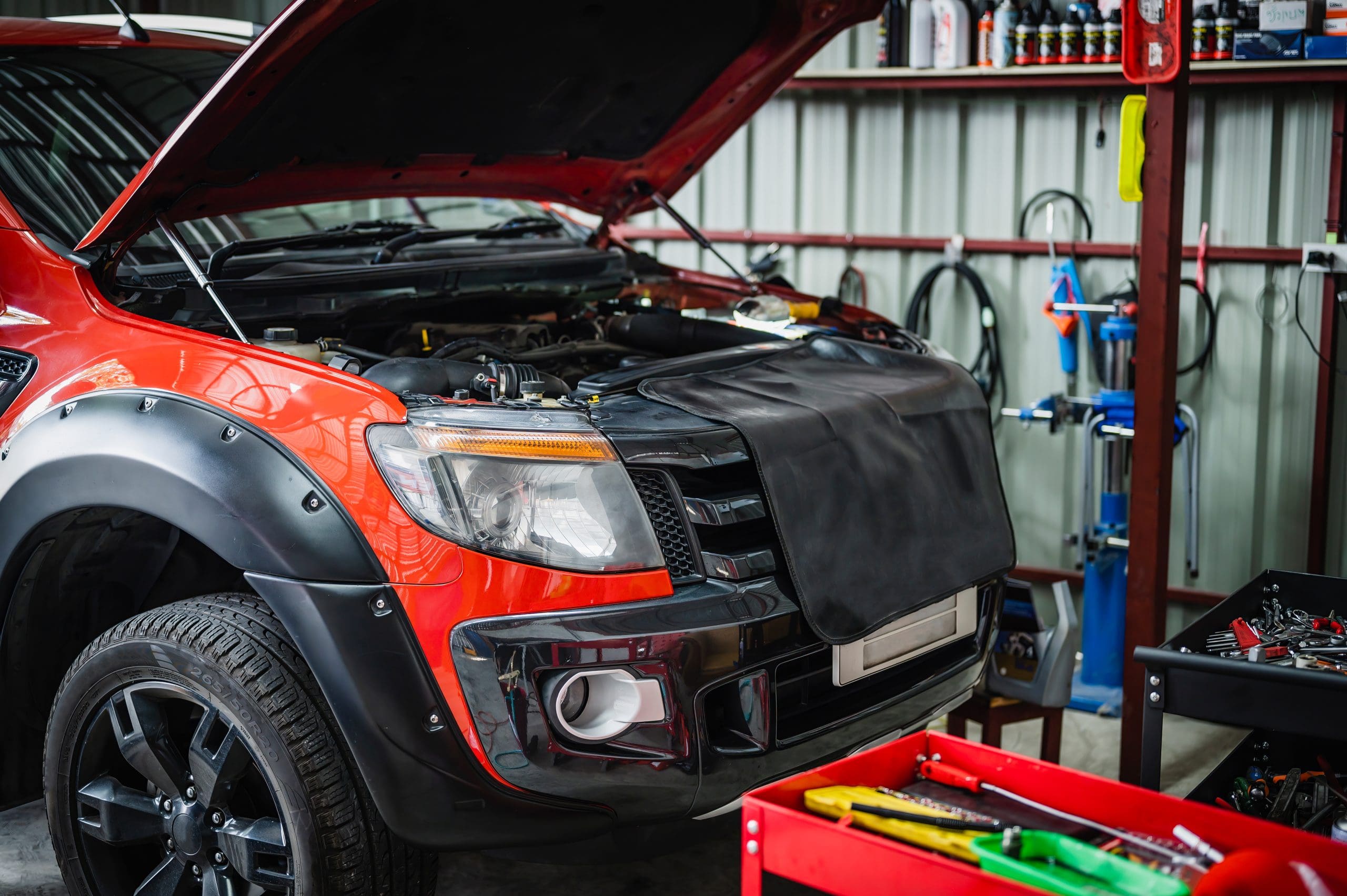
Landscape professionals depend on trucks, mowers and other equipment to accomplish their work. But trucks and mowers often need maintenance or repairs to continue performing properly.
“Not doing the work due to not having equipment is something we work hard to avoid,” says Nelson Alvarado, fleet manager at Russell Landscape Group, headquartered in Sugar Hill, Georgia. To overcome delays and keep jobs on schedule despite maintenance and repairs, Alvarado and other landscape professionals rely on several strategies.
Be Proactive
The most reliable way to avoid unexpected repairs is to undertake preventive maintenance for all trucks and equipment. With a fleet of several — or hundreds — of vehicles, a detailed maintenance plan is necessary and must be tracked regularly.
For example, at Russell Landscape Group, trucks are maintained three times a year or every 5,000 miles, Alvarado says. Mowers are maintained once a month or every 100 hours during the busy season and every other month during the slower winter months. Small engines are maintained at least twice each year.
In addition, repairs are completed as they arise, “but if preventive maintenance is completed properly, there are very few repairs,” Alvarado says.
Keep Track of Assets
In addition to regular maintenance, Alvarado depends on a cloud-based asset management system to keep track of all the company’s vehicles, as well as where they are located and their maintenance records.
“You need to have an accurate record of what you own, from heavy equipment to small equipment, and have this information accessible and organized so you can move equipment as necessary,” Alvarado says. “Once you know what you have, you can forecast a small percentage of spare or shareable companywide equipment.”
Have a Backup Plan
For many landscape companies, spare or shareable equipment is the best backup plan for delays caused by repairs. Those extra trucks or mowers may not be fit for everyday use, but they can fill in when needed.
“Never throw anything away,” says Ryan Farley, CEO of LawnStarter. “If you have the space to store your old equipment, you’ll be glad you hung onto it when something goes wrong. You’ll either be able to salvage spare parts from your old equipment, or take it into the field for a short-term replacement while you work on repairs.”
Bryan Clayton, who built and grew Nashville-based PeachTree Inc. to $10 million in annual sales before selling the business in 2013, says he lived by a simple rule: “For every 10 trucks on the road, we needed at least one spare,” he says.
Those spare vehicles were just good enough to tow a trailer if one of the company’s primary trucks went down, he says.
“If you’re a smaller operator, renting a truck in a pinch from U-Haul or Ryder can be a quick fix,” says Clayton, who is now CEO of GreenPal, an online marketplace for lawn care services. “However, for larger operations, it’s essential to have backup trucks and redundancies in place.”
Build Relationships with Mechanics
Russell Landscape Group, like many large landscaping companies, has in-house mechanics they can rely on to get damaged trucks and equipment back on the road quickly.
“We have a bunch of great mechanics and managers who work together to share equipment,” Alvarado says.
However, even if you don’t have in-house mechanics, work to develop strong relationships with reliable local mechanics. When a mechanic shop can trust you to continue bringing your business there and paying promptly, they will often be more likely to prioritize your repairs.
Communicate Openly and Often
Finally, as with any potential job hiccup, it’s crucial to communicate with customers when truck repairs or maintenance could have an impact on their job. Take a minute to communicate with your clients about any potential delay and if necessary, to reschedule as quickly as possible. Most clients will understand if they are kept in the loop and if they see that their landscaping professional is actively working to manage the situation and minimize any negative impact.
“Always have a solid and friendly attitude, and you will be able to get cooperation with everyone involved when you need to shift equipment around,” Alvarado says.

